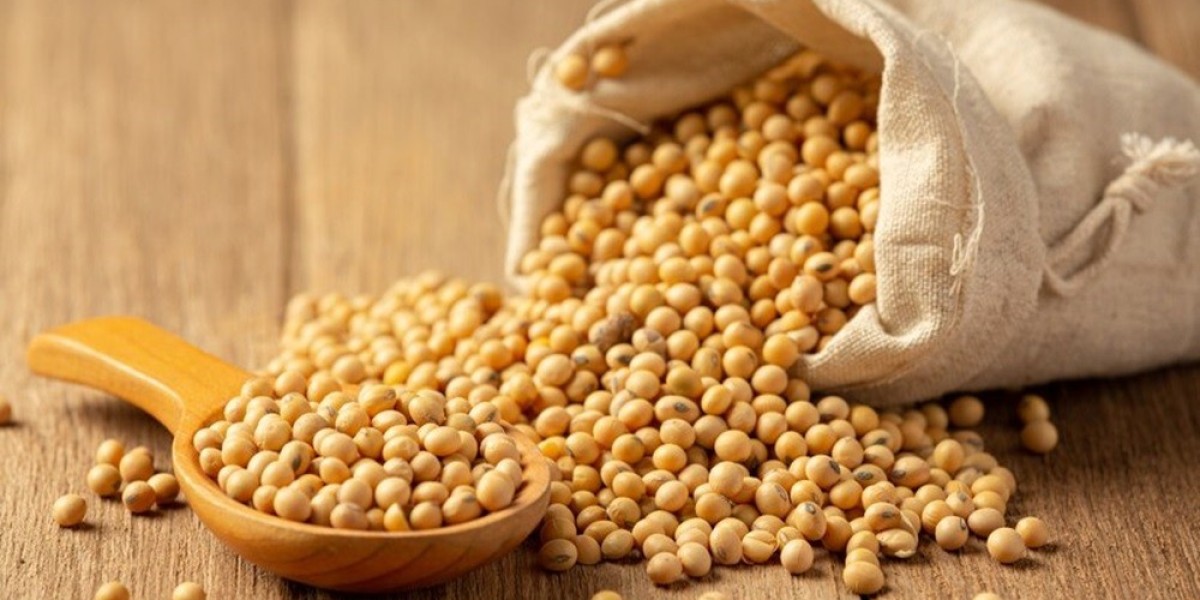Introduction to Soybeans
Soybeans, scientifically known as Glycine max, hold a significant place in agriculture, nutrition, and industry worldwide. Originally cultivated in East Asia, these versatile legumes have become a staple in diets around the globe. Understanding their importance requires delving into their history, soyabean production, nutritional profile, health benefits, economic impact, and culinary versatility.
Historical Significance
Origins of Soybeans
Soybeans have been cultivated for thousands of years, with origins traced back to ancient China. They were first domesticated around 1100 BCE, primarily for their high protein content. From China, soybeans spread to other parts of Asia, including Japan and Korea.
Spread and Adoption
During the 18th and 19th centuries, soybeans made their way to Europe and North America through trade routes and immigration. However, it wasn't until the 20th century that soybeans gained widespread acceptance in Western diets, primarily due to advancements in processing techniques and the discovery of their nutritional benefits.
Nutritional Value of Soybeans
Macronutrients
Soybeans are renowned for their high protein content, making them a valuable source of plant-based protein for vegetarians and vegans. Additionally, they contain healthy fats, carbohydrates, and dietary fiber, making them a well-rounded nutritional choice.
Micronutrients
In addition to macronutrients, soybeans are rich in essential vitamins and minerals, including iron, calcium, magnesium, and vitamin K. These micronutrients play crucial roles in various bodily functions, such as blood clotting, bone health, and metabolism.
Health Benefits
Heart Health
Consuming soybeans and soy-based products has been linked to numerous cardiovascular benefits, including reduced cholesterol levels, improved blood vessel function, and decreased risk of heart disease.
Bone Health
Soybeans are an excellent source of calcium and vitamin K, both essential for maintaining strong and healthy bones. Regular consumption of soy products may help prevent osteoporosis and improve bone density.
Weight Management
Due to their high protein and fiber content, soybeans can aid in weight management by promoting feelings of fullness and reducing overall calorie intake. Incorporating soy-based foods into a balanced diet can support weight loss and weight maintenance efforts.
Environmental Impact
Sustainability
Soybeans are a sustainable crop with a relatively low environmental footprint compared to animal agriculture. They require less water and land to produce, making them a more eco-friendly protein source.
Crop Rotation
Soybeans play a crucial role in crop rotation, as they help improve soil fertility by fixing nitrogen and reducing the need for synthetic fertilizers. This practice promotes sustainable farming practices and reduces soil degradation.
Economic Importance
Agricultural Industry
Soybeans are one of the most widely cultivated crops globally, contributing significantly to the agricultural sector's economy. They serve as a cash crop for many farmers and play a vital role in food production, animal feed, and biofuel production.
International Trade
The international trade of soybeans is a multi-billion-dollar industry, with major exporting countries including the United States, Brazil, and Argentina. Soybeans and soy products are traded globally, supporting economic growth and development in both exporting and importing nations.
Culinary Uses
Tofu and Soy Milk
Tofu, also known as bean curd, is a popular soy-based food made from soybean curds. It is a versatile ingredient used in various cuisines worldwide, prized for its high protein content and ability to absorb flavors. Soy milk, another common soy product, serves as a dairy alternative for individuals with lactose intolerance or dietary preferences.
Soybean Oil
Soybean oil is widely used in cooking and food processing due to its neutral flavor, high smoke point, and health benefits. It is a primary ingredient in many processed foods, salad dressings, and margarines, contributing to its widespread consumption.
Challenges and Controversies
GMO Debate
The widespread adoption of genetically modified (GM) soybeans has sparked debates regarding their safety, environmental impact, and ethical considerations. While GM soybeans offer potential benefits such as increased crop yields and pest resistance, they also raise concerns about genetic diversity and long-term health effects.
Environmental Concerns
Soybean production in India has been associated with deforestation, habitat loss, and biodiversity decline in regions such as the Amazon rainforest. Additionally, intensive farming practices, such as monoculture and pesticide use, pose environmental challenges that need to be addressed for sustainable soybean production.
Future Prospects
Research and Development
Ongoing research and development efforts aim to enhance soybean varieties for improved yields, nutritional quality, and environmental resilience. Innovations in biotechnology, breeding techniques, and sustainable farming practices hold promise for the future of soybean agriculture.
Alternative Uses
Beyond traditional food and feed applications, soybeans are being explored for various industrial purposes, including biofuel production, bioplastics, and pharmaceuticals. These alternative uses diversify soybean markets and contribute to a more sustainable and economically viable industry.
Conclusion
In conclusion, soybeans play a crucial role in global agriculture, nutrition, and industry. From their humble origins in East Asia to their widespread adoption worldwide, soybeans have proven to be a versatile and valuable crop. With their nutritional benefits, environmental advantages, and economic importance, soybeans continue to shape the future of food production and sustainability.
To Get Real-Time Price of Soyabean Visit: https://pricevision.ai
Source: https://diigo.com/0vys3v






